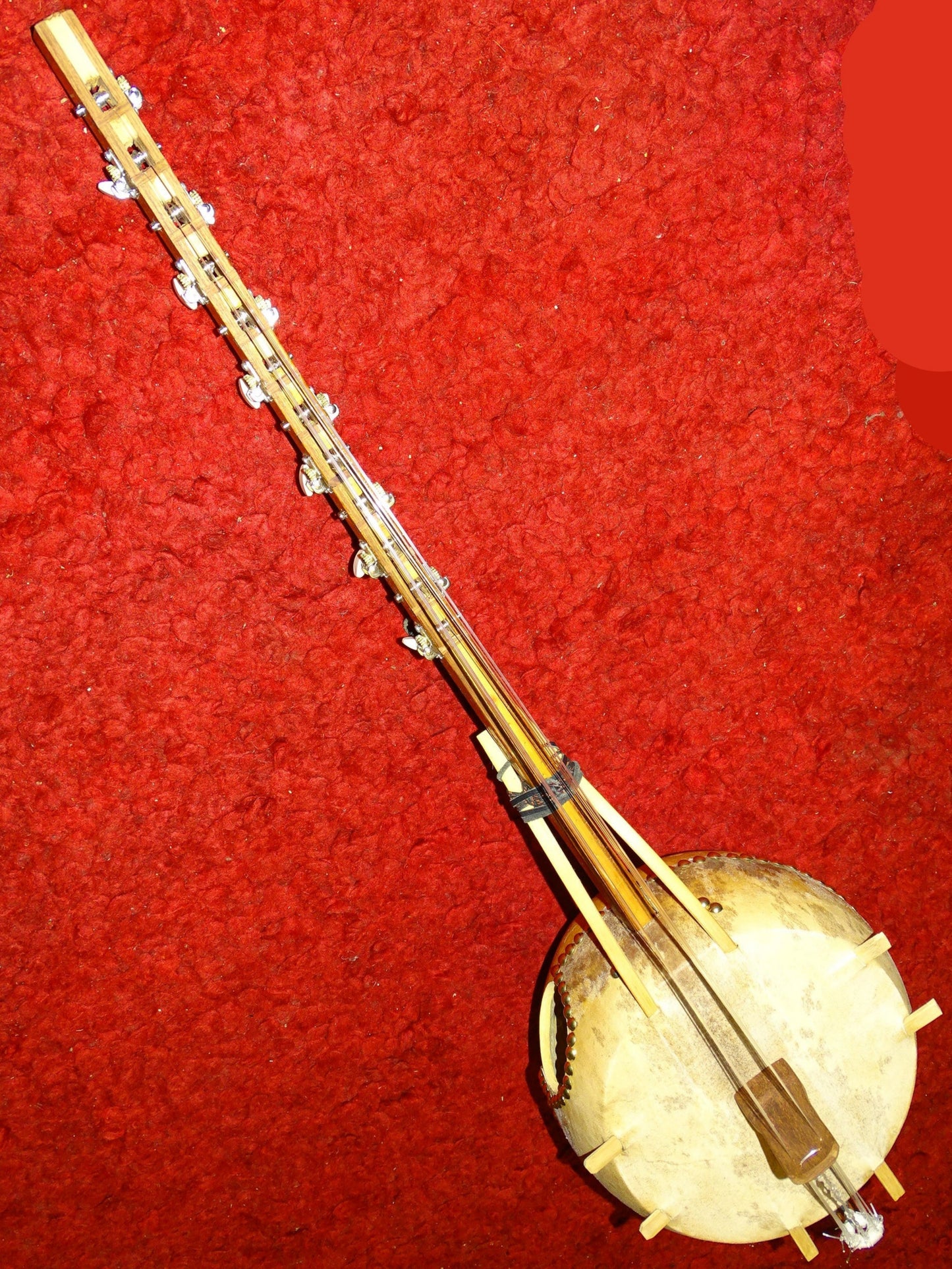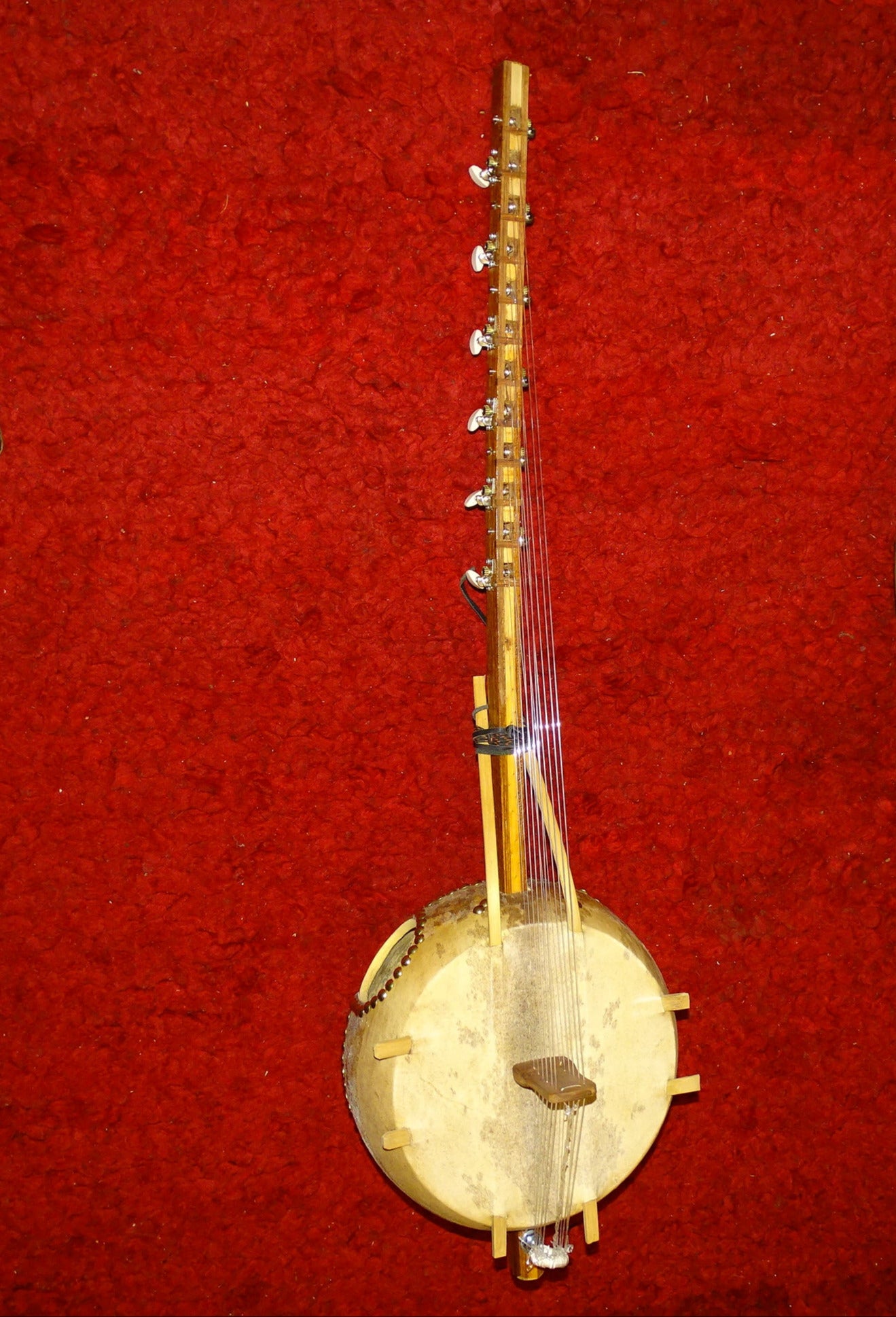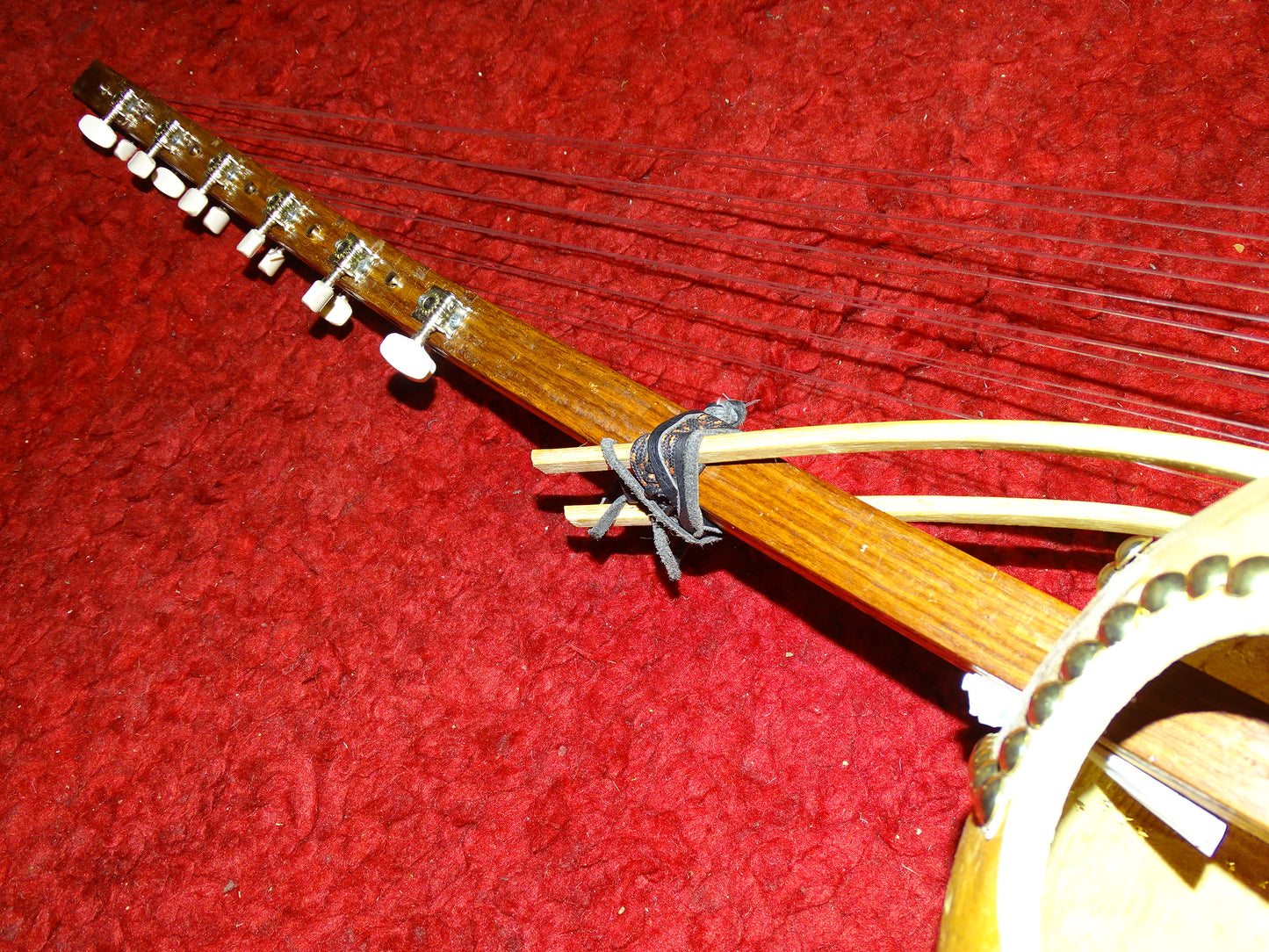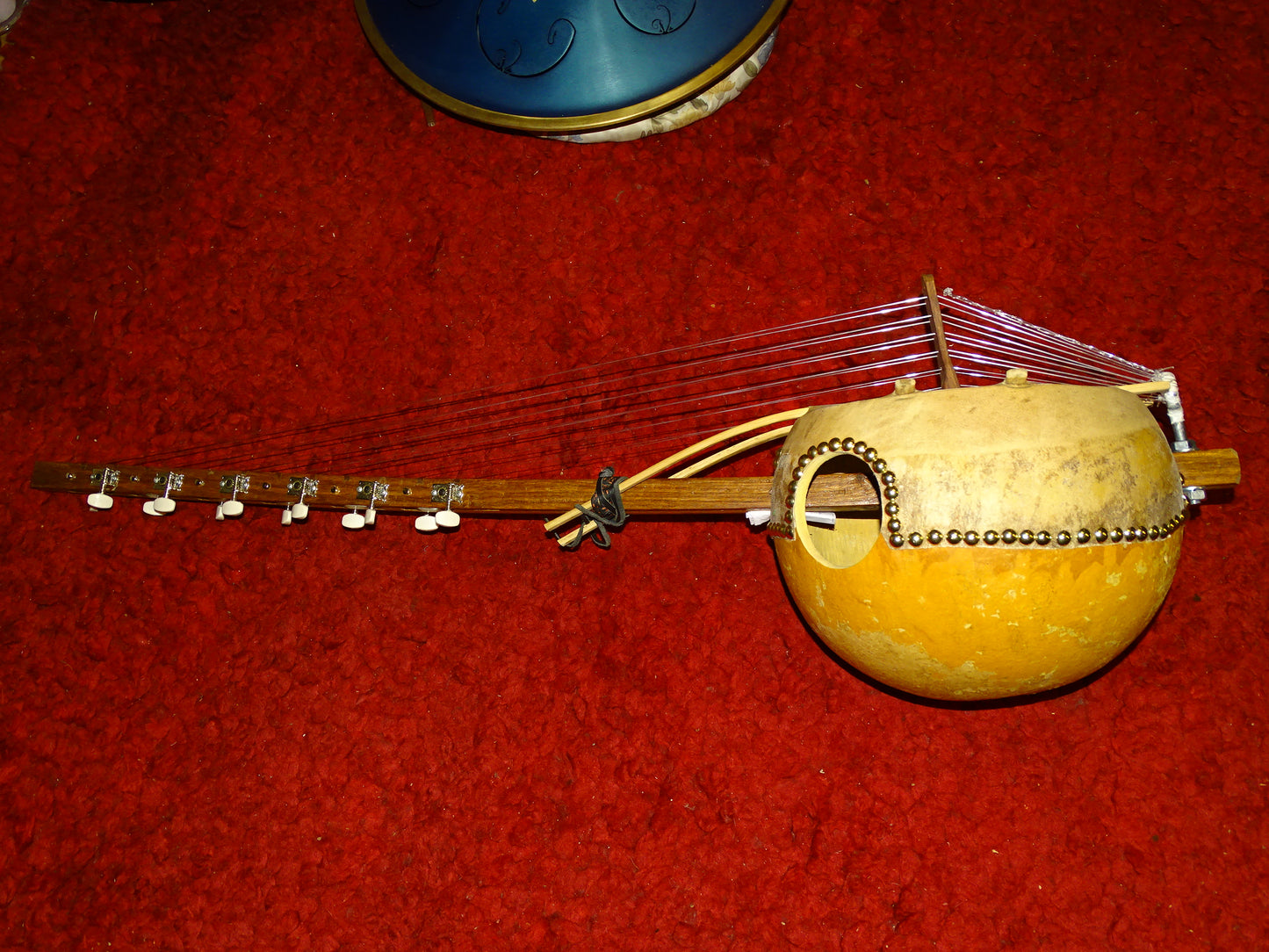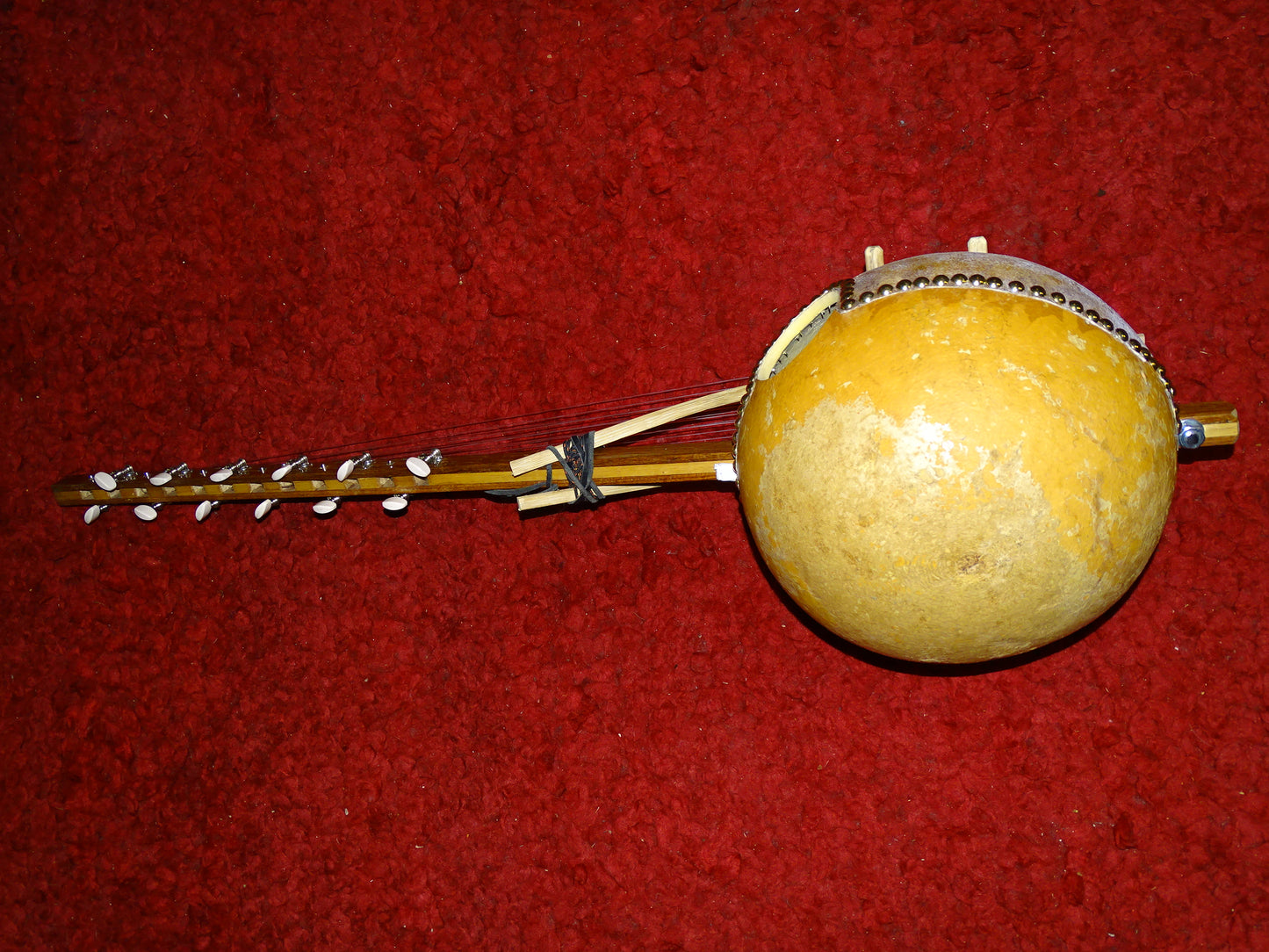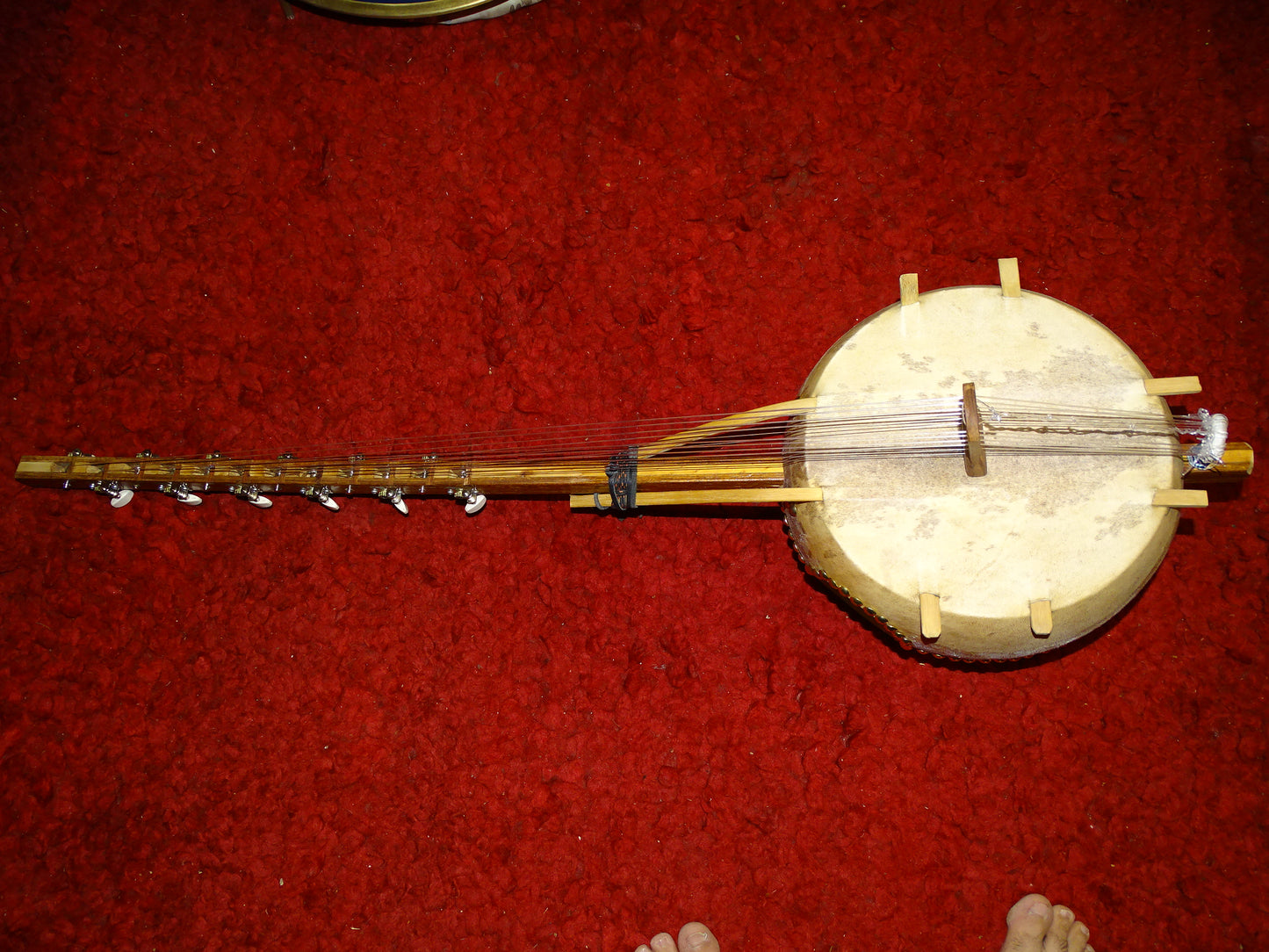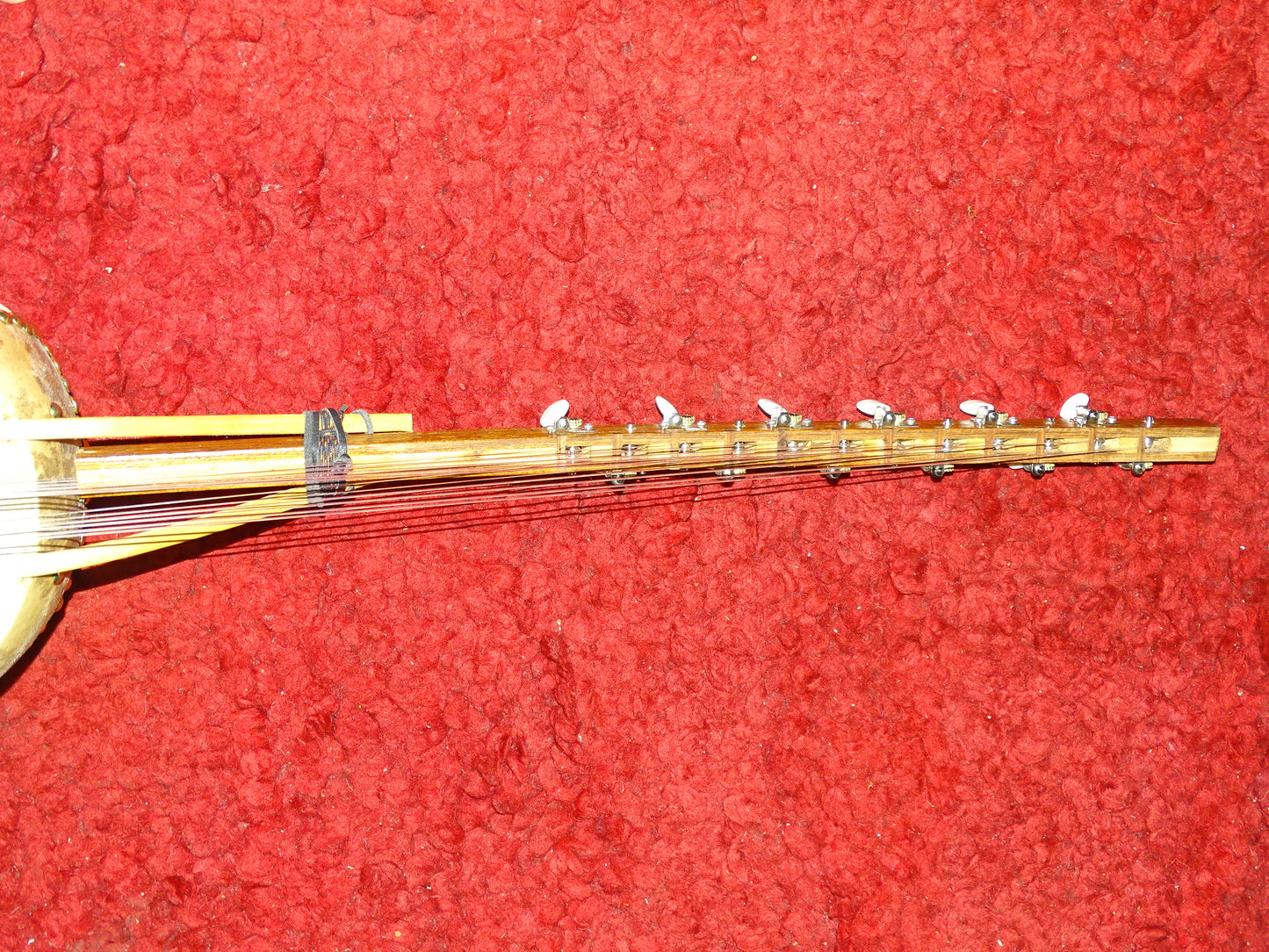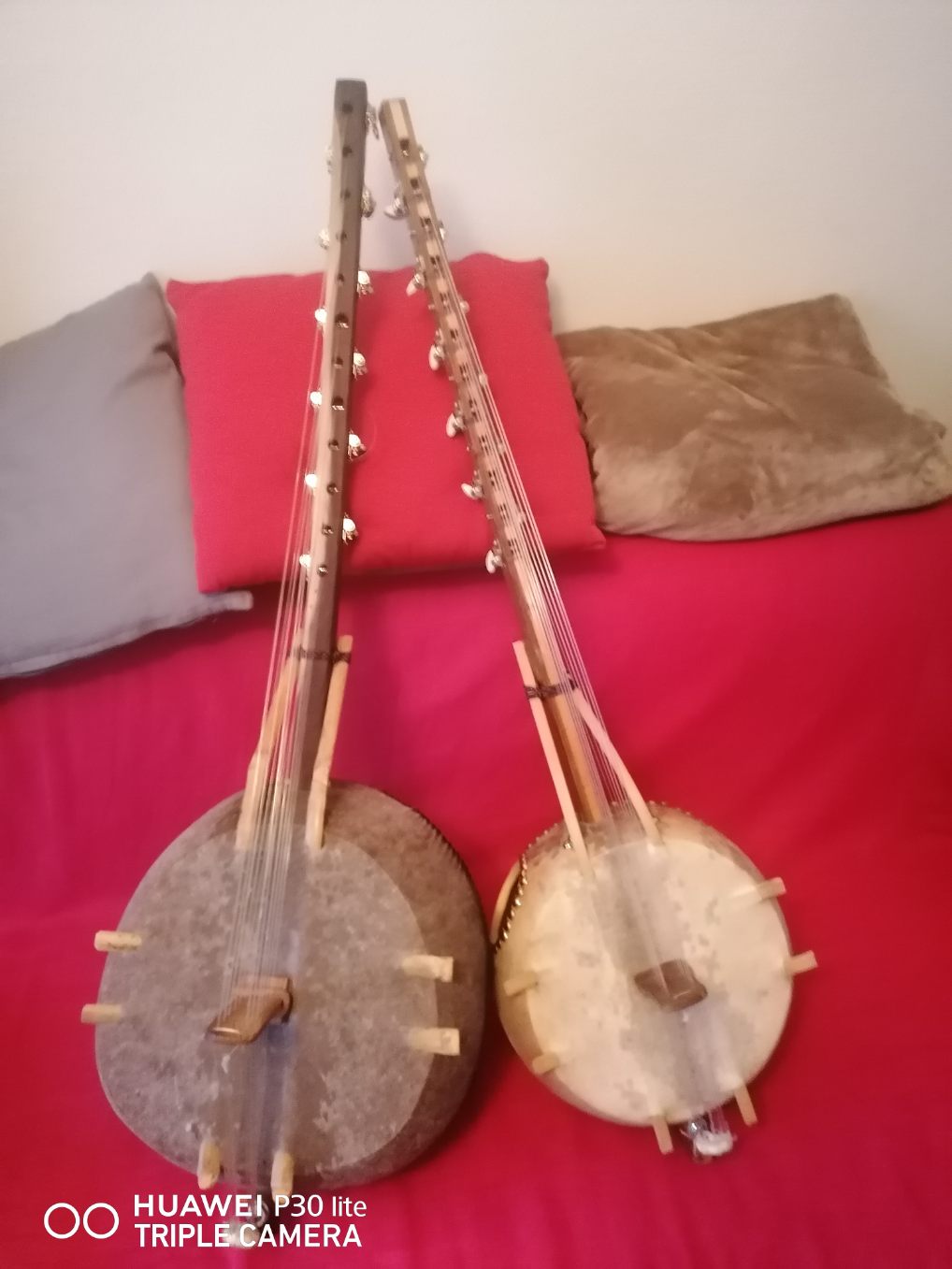Kamélé n'Goni, 12 nylon strings, made in Mali in the tradition! 1.10 meters high, pumpkin body 35 centimeters in diameter, the African harp!
Kamélé n'Goni, 12 nylon strings, made in Mali in the tradition! 1.10 meters high, pumpkin body 35 centimeters in diameter, the African harp!
Couldn't load pickup availability
-
About the product:
- Material: Wood
- Height in centimeters: 110
- Country of origin: Mali
- A high-quality concert instrument, particularly well finished.
- A full, carrying sound, easy to play!
- Also includes a carrying bag.
- Tuned to a traditional scale, but you can change the tuning as you wish.
- Gem and Zen will give you at least 4 possible tunings!
- Each instrument is individually handcrafted in Mali according to the rules of the art!
🎶 Kamalé N'goni – Modern West African harp-lute
Here is comprehensive information about the kamalé n'goni (sometimes spelled kamélé ngoni or kamale n'goni) – a fascinating instrument at the crossroads of tradition and innovation.
The kamalé n'goni is a plucked string instrument originating from West Africa, more precisely Mali, and particularly from the Bambara and Wassoulou regions. It is a harp-lute traditionally associated with hunters' music and Wassoulou culture, but it evolved into a more modern and melodious form during the 20th century.🎼 Instrument Features:
Element Description Origin Mali (Wassoulou region), 1950s-60s Kind Harp-lute (similar to the kora) Strings 12 nylon strings (often tuned pentatonically) Body A calabash (large dried gourd) covered with goatskin Sleeve A long wooden handle runs through the gourd and serves as a support for the strings Game Played with the thumbs and index fingers, the strings being plucked with both hands 🪕 Differences with other instruments:
Donso N'goni: The traditional hunters' instrument, older, generally with 6 to 8 strings, reserved for rituals.
Kora: A much more complex 21-string harp, also from West Africa.
Kamalé n'goni literally means "n'goni of the young", because it has freed itself from the strict ritual customs of donso n'goni.
🔊 Sound:
The kamalé n'goni has a warm, soft and rhythmic sound, ideal for melodic and sung music.
Often used to accompany vocals in Afro-blues, Mandingo folk, world music, and even modern fusion styles (electro, reggae, etc.).
🎤 Famous artists:
Bassekou Kouyaté (rather traditional ngoni, but related)
Sekouba Traoré
Ablaye Cissoko (mainly kora, but close in style)
Many contemporary world music artists use the kamalé n'goni as their main instrument.
🌍 Modern usage:
Very popular in circles of meditative music, yoga, intuitive music, or African percussion.
An instrument accessible to beginners, especially with the pentatonic tuning which avoids false notes.
Used in music therapy and participatory music projects.
Share
